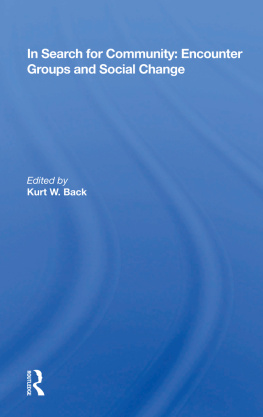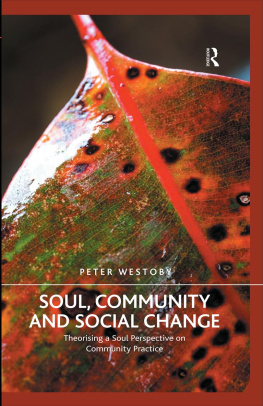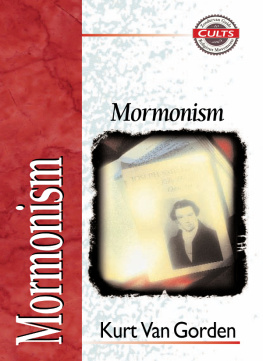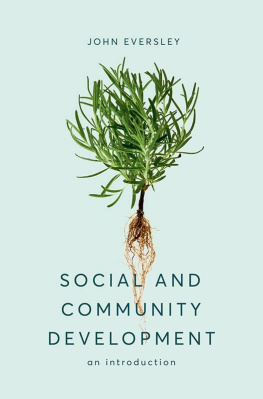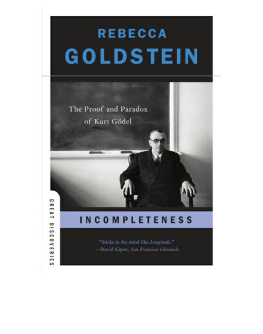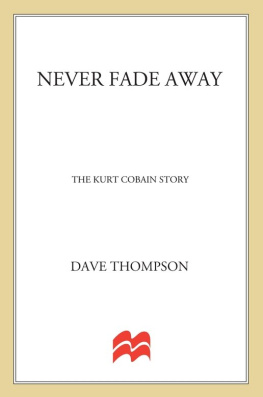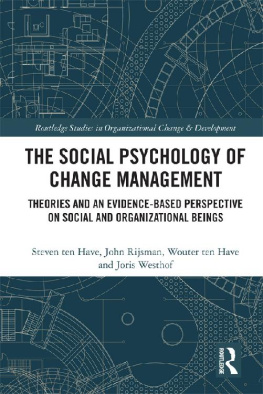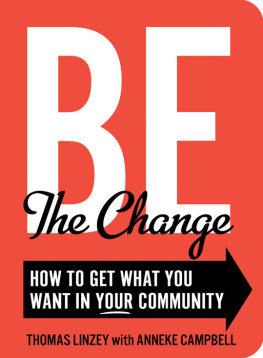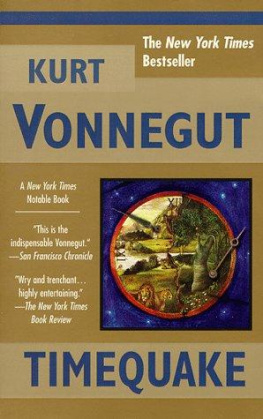In Search for Community: Encounter Groups and Social Change
AAAS Selected Symposia Series
In Search for Community: Encounter Groups and Social Change
Edited by Kurt W. Back
First published 1978 by Westview Press
Published 2018 by Routledge
52 Vanderbilt Avenue, New York, NY 10017
2 Park Square, Milton Park, Abingdon, Oxon OX14 4RN
Routledge is an imprint of the Taylor & Francis Group, an informa business
Copyright 1978 by the American Association for the Advancement of Science
All rights reserved. No part of this book may be reprinted or reproduced or utilised in any form or by any electronic, mechanical, or other means, now known or hereafter invented, including photocopying and recording, or in any information storage or retrieval system, without permission in writing from the publishers.
Notice:
Product or corporate names may be trademarks or registered trademarks, and are used only for identification and explanation without intent to infringe.
Library of Congress Number: 77-90415
ISBN 13: 978-0-367-02124-5 (hbk)
About the Book
Each society has its own ways of integrating members into its community, and in times of rapid social change these methods for asserting and continuing communities change their form and meaning. Current society has spawned new devices such as encounter groups and self-realization techniques designed to exalt community purely in terms of interpersonal relations. The contributors to this volume study this phenomenon from a cross-disciplinary point of view, drawing on the fields of anthropology, psychology, social psychology, sociology, and history. Their approach enables us to evaluate the new groups and techniques in comparison with other phenomena in the society and with rituals in other societies and times, clearly placing them in the history of ideas. The articles also provide us with a clearer understanding of the particular techniques used.
Introductory Note
This monograph consists of papers presented at two symposia at AAAS Annual meetings, Encounter Groups in 1971 and Encounter Groups and Social Change in 1977. The three papers, "Encounter Groups: Some Empirical Issues, Explanations, and Values" by Bernard G. Rosenthal, "Sensitivity Training: Dilemmas in Paradise" by Alexander D. Blumenstiel and "I have always depended on the kindness of strangers'" by Kurt W. Back, were given at the earlier meeting and selected for this volume because of their relevance to the current topic. They were updated and revised by the authors. The other four papers, "Passage to Community: Encounter in Evolutionary Perspective" by James W. Fernandez, "Destructive Gemeinschaft" by Richard Sennett, "Encounter Groups and Humanistic Psychology" by M. Brewster Smith, and "Communes, Encounter Groups and the Search for Community" by Benjamin D. Zablocki were given at the 1977 meeting and edited by the authors for this volume.
The AAAS Selected Symposia Series was begun in 1977 to provide a means for more permanently recording and more widely disseminating some of the valuable material which is discussed at the AAAS Annual National Meetings. The volumes in this Series are based on symposia held at the Meetings which address topics of current and continuing significance, both within and among the sciences, and in the areas in which science and technology impact on public policy. The Series format is designed to provide for rapid dissemination of information, so the papers are not typeset but are reproduced directly from the camera copy submitted by the authors, without copy editing. The papers are reviewed and edited by the symposia organizers who then become the editors of the various volumes. Most papers published in this Series are original contributions which have not been previously published, although in some cases additional papers from other sources have been added by an editor to provide a more comprehensive view of a particular topic. Symposia may be reports of new research or reviews of established work, particularly work of an interdisciplinary nature, since the AAAS Annual Meeting typically embraces the full range of the sciences and their societal implications.
WILLIAM D, CAREY
Executive Officer
American Association for
the Advancement of Science
About the Editor
Kurt W. Back , James B. Duke Professor of Sociology at Duke University , has conducted research in group formation and social change the measurement of interpersonal group and elite communications the interrelations of psychology , demography and history; and the social psychology of culture. He is the author and coauthor of many books, including Beyond Words: The Story of Sensitivity Training and the Encounter Movement (Russell Sage, 1972).
Kurt W. Back
Frustrated longing for community will be readily accepted as a predicament of contemporary society. One may wonder why this is so. Simple explanations have been given either that there has been an actual deprivation or that we have a heightened awareness of human need for community. Both seem to be off the mark. As in analogous situations with other needs, the situation is probably more complex. A sense of deprivation, derived from some real threat, may lead to a frantic search of the experience itself. Like a Don Juan, who cannot love but searches for conquests for their own sake, we find community bereft of its wider meaning becoming an even more compelling goal.
A currently popular point of view proclaims that the perfect community did exist, but has been destroyed by the development of modern technological society. This resembles the traditional belief in a golden age or lost paradise, and has as little foundation in actual fact. For instance, Raymond Williams (1) has shown how the image of a perfect integrated community has been put about one hundred years in the past, century after century. It is likely, therefore, that the perfect, integrated community is an ideal. In a similar vein Burke (2) has shown that temporally prior is frequently used as a metaphor for the logically prior, and so the belief in the strong community in the past may well be a metaphor for a deep-seated need for community.
The essays collected in this volume do not bemoan the break-up of the ancient community leading to a current frantic search to re-establish it, but they acknowledge a peculiarity in current efforts to assuage this desire, which really may be a new development. This new feature is the acceptance of community for its own sake. The very facts of membership, of interaction and of emotional response are accepted as values in themselves. The resulting self-consciousness of group membership leads to concentration on the present situation, the minute analysis of interpersonal relations and the values of self-realization, "self" being defined mainly as body and emotions.
The clearest expressions of the search for community, as conceived in this way, are the mechanisms which have been created for group interaction and self-expression, such as encounter groups, T-groups, sensory awareness and their several variations. As specific social inventions, they belong to our time and society, although analogous groups have had a long heritage. The sessions at which these papers were presented had encounter groups as their common focus, as well as in their title. They looked at encounter groups from the perspectives of different disciplines and different empirical approaches. Each author placed this new technique into an appropriate setting, as a social, historical or personal phenomenon.



